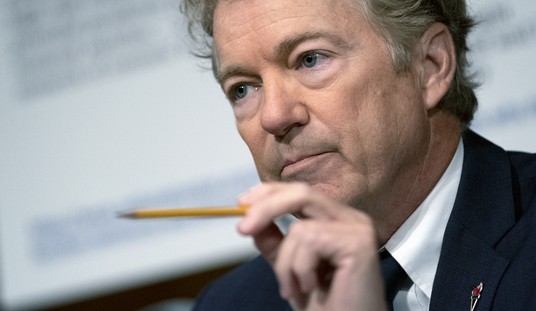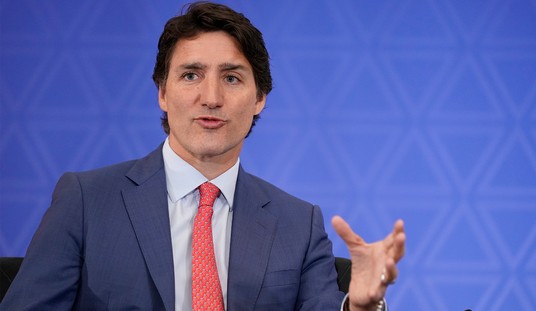Ahead of the 2014 midterm campaign season — and as the nation marks the 50th anniversary of President Lyndon B. Johnson’s “war on poverty” this week — Democrats and Republicans alike are trying to convince voters they are on the side of the middle class and those striving to break into it…
For the GOP, the challenge is to move beyond the rhetoric of past campaigns and focus on specific policies showing the party would be effective on behalf of the poor. While some leading Republican figures are developing their own policy prescriptions in anticipation of the 2016 presidential race, there is little consensus within the party about a shared poverty agenda…
But there is deep disagreement among Republican leaders and strategists over whether to embrace an economic-mobility agenda in the 2014 midterm campaigns. Some Republicans are wary of doing so, seeing it as playing on Democrats’ home turf, and think they are better off drawing voters’ attention to the rocky rollout of the health-care law and other problems plaguing Obama.
“People on the right say, ‘We don’t have to have much of a forward-looking agenda, and it gives a target to Democrats if we put things forward, and let the liberals crumble under their own weight,’” said Peter Wehner, a former adviser in the Reagan administration and both Bush administrations and a senior fellow at the Ethics and Public Policy Center.
Six Republicans joined 54 members of the Senate Democratic Caucus on Tuesday to overcome a 60-vote threshold to begin debate on a three-month extension of jobless benefits for the long-term unemployed. These people have exhausted the standard 26 weeks of unemployment benefits…
House Speaker John Boehner, R-Ohio, said in a statement the House would wait to see what the Senate can pass, and that the House will not entertain an extension that does not include any savings or job-creation efforts. Boehner said the “ultimate solution to joblessness is more jobs.”
House Republicans have approved dozens of bills they say will spur job creation, but they have received no attention in the Democratic-controlled Senate. Democrats counter that if Republicans want to see offsets, they should come up with suggestions for those savings. “We don’t think it should be paid for. Why should the onus be on us?” Reid said.
House Republican leaders sent a memo this week to the entire GOP conference with talking points designed to help rank-and-file Republicans show compassion for the unemployed and explain the Republican position on unemployment benefits. In the memo, which was obtained by The Washington Post, House Republicans are urged to be empathetic toward the unemployed and understand how unemployment is a “personal crisis” for individuals and families. The memo also asks Republicans to reiterate that the House will give “proper consideration” to an extension of long-term insurance as long as Democrats are willing to support spending or regulatory reforms.
A bipartisan Senate bill that would extend benefits for the long-term unemployed cleared a procedural hurdle Tuesday, with six Republicans joining Democrats to vote for it. But the bill faces an uncertain future in the upper chamber, where it will have to clear another 60-vote hurdle before moving to a final vote.
Unemployment insurance extensions in the past five years have kept at least 600,000 people out of the labor force, because people tend to ride a gravy train. That’s the conclusion of analyses by the Federal Reserve Bank of San Francisco and the National Bureau of Economic Research, respectively. The evidence is clear: Another extension of unemployment insurance would do more harm than good…
Perverse incentives impact states, as well. Extended unemployment benefits are disproportionately transferred to high-unionization, high-unemployment states such as California, Michigan, Illinois, New York and Massachusetts. And that amounts to political cronyism. Politicians in those heavily Democratic states could be pals of the current administration, but those states have a record of failure in putting people to work.
Nor is unemployment insurance doing any favors for the federal deficit. Under current law, the states are supposed to pay back the federal treasury $38 billion for emergency unemployment insurance benefits paid out.
A year’s extension would add $25 billion to the tab, or about $6.25 billion for three months. That money is not in the budget, and none of the options for getting it is pain-free.
But here’s another hidden cost to this dynamic: With more people receiving unemployment benefits, and given the costs associated with working, employers have to pay more to attract the unemployed. Again, this is good for those workers — but it is bad for their unemployed neighbors.
States that extend unemployment benefits have higher wages (because it costs more to lure people away from the UI benefits) but fewer jobs available and more people unemployed, according to a recent study by researchers from the University of Pennsylvania, the New York Fed and the University of Oslo in Norway.
In other words, a company that could have created three jobs at $30,000 can’t get workers for $30,000, so it creates two jobs for $45,000 – and the third guy is out of luck. This effect is so large that it drove “most of the persistently high unemployment after the Great Recession,” according to the study.
Liberals dismiss the disincentive effects today, arguing there just aren’t jobs out there. Maybe the jobs aren’t there because lengthy unemployment insurance is killing these jobs.
Senate Minority Leader Mitch McConnell tried to tie the bill extending jobless benefits for 1.3 million people to a delay in the Affordable Care Act’s individual mandate Tuesday…
From McConnell’s exchange with Majority Leader Harry Reid, D-Nev., on the floor moments ago:
“To that end, I’d like to propose that my side be allowed to offer an amendment to pay for these benefits by lifting the burden of Obamacare’s individual mandate for one year and take care of our veterans who were harmed by the recently agreed-to budget deal while we’re at it in the same amendment,” McConnell said. “And once that is disposed of, we can have an actual debate on this issue and an amendment process here in the Senate, which hasn’t happened very often in recent times.”
A Republican senator is pushing a curious alternative to extending aid for the long-term unemployed — entice companies to hire them by letting those businesses off the hook on ObamaCare.
Sen. John Thune, R-S.D., is one of several Republicans offering up amendments to a Senate bill that would extend long-term jobless benefits for three months, at a cost of more than $6 billion…
The so-called employer mandate has been delayed by a year, but would eventually require businesses with 50 or more full-time workers to provide insurance or pay a fine. The Thune amendment would ensure that any long-term unemployed person hired by a company would not count toward the 50-worker threshold.
Conservatives should also consider some creative reforms of the unemployment-insurance system. Giving unemployed workers a modest cash bonus when they secure employment has been shown to be effective in shortening the length of unemployment spells, and, if targeted at workers who have a high probability of exhausting benefits, it can actually save the taxpayers money in the long run. It seems implausible that a re-employment bonus would have a large effect on long-term unemployment, but evidence suggests that it would help in addressing shorter unemployment spells. There is also some evidence that giving out lump-sum unemployment benefits may be preferable to the current system of weekly checks. Under traditional unemployment insurance, a worker forgoes his unemployment benefit by taking a job. Lump-sum unemployment insurance may be beneficial because it would mitigate the weekly-check system’s incentive to delay starting a job. With lump-sum unemployment benefits paid, say, every month rather than every week, a worker who got a job at the beginning of a pay period could take in both unemployment compensation and a paycheck for that month. If this gets workers off unemployment faster, then the program could save money over traditional unemployment insurance…
This second scenario is called worksharing. It involves two components: the redistribution of labor hours among workers with the goal of reducing involuntary unemployment, and short-time unemployment compensation to make up part of workers’ lost wages through the unemployment-insurance system. Short-time unemployment compensation works in the same way as traditional unemployment compensation except that it applies to a reduction in work hours and not a layoff. Think of it as a prorated unemployment benefit…
[W]orksharing may more equitably distribute the costs of recessions across the labor force. In our example of the 100-worker firm, under worksharing every worker would lose 20% of his salary, and some fraction of that would be replaced by a short-time unemployment benefit. The pain of the recession would be spread evenly across the workers. Without worksharing, the 20 workers who were laid off would bear all of the pain, while the 80 who remained would bear none.
“If this is so important to the country, why didn’t the democrats and the president insist that it be included in that budget deal that was worked out at the end of last year to keep the government open for two years?” Blitzer said, noting that this was a question he is often asked.
“The cynics would say, here you are, you have a great political issue to bludgeon Republicans with,” CNN’s phief political analyst said. “I think there are lots of Democrats who raised that same question.”
“It’s a legitimate question to raise,” Borger conceded. “Why wasn’t this done, if it’s that important, before Congress went off on recess?”








Join the conversation as a VIP Member